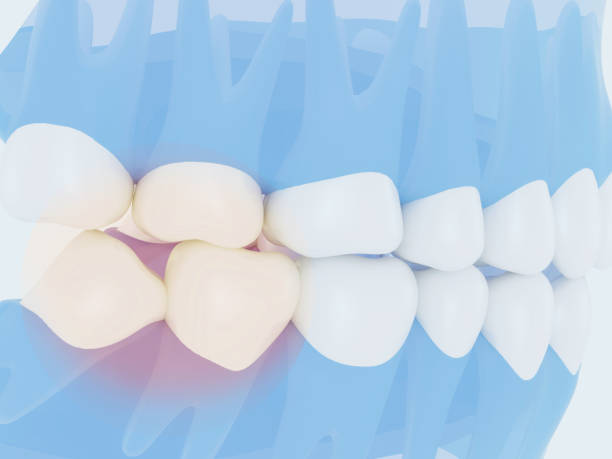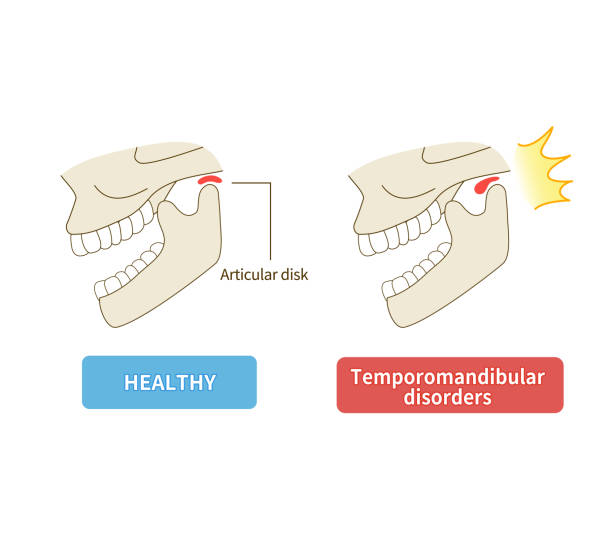
Wisdom teeth, also called third molars, are the last set of molars to erupt, typically between the ages of 17 and 25. While they can be beneficial if healthy and properly aligned, wisdom teeth often lead to complications like crowding, impaction, or decay, making extraction a standard procedure. Globally, studies show that wisdom tooth removal is most frequent in individuals aged 18-25, with a significant percentage requiring intervention due to complications.
Dr. Dheeraj Punjabi , of Dental Krafts, a state-of-the-art Dental Clinic in Govandi, Mumbai, says:
“Healthy and well-aligned wisdom teeth can contribute to effective chewing. However, if they are problematic, they can significantly impact oral health, making timely extraction essential.”
Known for his expertise in Wisdom Tooth Extraction in Govandi , Mumbai Dr. Dheeraj has helped countless patients recover comfortably. This blog explores why pain may persist 6 months after extraction, the types of pain that can occur, and steps to address it.
Have you ever wondered why pain lingers so long after a routine extraction? Let’s dive into what’s happening.
Is Pain 6 Months After Wisdom Tooth Extraction Normal?
Pain after a wisdom tooth extraction is common during the initial recovery phase, with symptoms like swelling, tenderness, and mild discomfort typically subsiding within a few weeks. However, having pain 6 months after wisdom tooth extraction is less typical and may indicate an underlying issue.
While mild sensitivity in the area may persist due to nerve regeneration or bone healing, significant pain is abnormal. It could suggest problems like infection, dry socket, or nerve damage. Identifying and addressing the cause promptly is crucial to preventing further complications.
Are you dealing with persistent pain 6 months after tooth extraction? Don’t ignore the signs. Consult a dental professional to uncover the cause and get relief today.
What types of pain can develop months after extraction? Let’s explore the possibilities.
What Types of Pain Can Occur 6 Months After Wisdom Tooth Extraction?
Some types of pain that may manifest long after the extraction process include:
Nerve Pain:
During extraction, surrounding nerves might sustain damage or irritation. This can lead to lingering sensations such as sharp or shooting pain that radiates to other areas of the face or jaw. In some cases, nerve damage might require specialized care to resolve fully.
Infection-Related Pain:
Even months later, infection can arise from trapped debris or incomplete healing of the surgical site. This type of pain is often accompanied by redness, swelling, and a feeling of heat around the area. Left untreated, it may escalate into a more severe condition requiring antibiotic intervention.
TMJ Pain:

Temporomandibular joint (TMJ) discomfort might occur due to jaw strain during the extraction process. This can lead to chronic stiffness, pain when opening or closing the mouth, and even headaches. Long-term TMJ issues often benefit from targeted physical therapy or specialized dental appliances.
Phantom Tooth Pain:
Though rare, phantom tooth pain involves a persistent sensation in the site where the tooth once was, despite complete healing. It is believed to result from nerve miscommunication and may require pain management strategies or further consultation with a specialist.
Understanding the type of pain you are experiencing is crucial to addressing it effectively.
So, what should you do if you’re still in pain? Here’s how to handle it effectively.
What to Do If You Experience Pain 6 Months After Wisdom Tooth Extraction
If you’re experiencing pain 6 months after tooth extraction, here’s what you should do:
Contact Your Dentist or Oral Surgeon:
If you’re experiencing pain 6 months after tooth extraction, here’s what you should do:
Contact Your Dentist or Oral Surgeon:

Seeking professional guidance from your dental professional is essential to ensure your recovery stays on the right track. They can assess whether unresolved issues like infection, nerve damage, or improper healing are causing your pain.
Home Remedy:
Rinse your mouth with warm salt water to soothe inflammation and promote healing. Stick to a soft diet to avoid additional strain. Be mindful of habits like clenching your teeth, which can exacerbate discomfort.
Over-the-Counter Pain Relief:
Non-prescription medications, such as ibuprofen or acetaminophen, can help manage mild pain and reduce inflammation. However, these should only serve as temporary relief while seeking professional care.
Dr. Dheeraj Punjabi, an eminent dentist in Govandi, advises:
“Ignoring persistent pain can lead to severe complications like infections or permanent nerve damage. Timely intervention is vital not only for alleviating discomfort but also for preventing irreversible issues. Your oral health deserves the same urgency and care as any other body part.”
Experiencing discomfort months after extraction? Act now to avoid complications—contact your dentist today for personalized care.
Can lingering pain be prevented? Let’s find out how.
Preventing Lingering Pain After Wisdom Tooth Extraction
Preventing long-term pain starts with proper care:
Proper Post-Operative Care:
Adhere to post-surgical guidelines, such as taking prescribed medications on time, applying cold compresses for swelling, and avoiding strenuous physical activities that could disrupt healing.
Follow the Dentist’s Instructions:

Ensure you attend regular follow-up appointments. Your dentist can identify and address potential issues, such as incomplete healing or misalignment before they develop into bigger problems.
Maintain Good Oral Hygiene:
Keep the extraction site clean to prevent bacterial growth. Use a soft-bristled toothbrush and avoid harsh rinsing or aggressive brushing near the surgical area.
Avoid Risk Factors:
Smoking or using tobacco products can significantly delay healing and increase infection risks. Additionally, steer clear of hard or sticky foods that could disturb the surgical site.
Support Your Healing with Nutrition:
Incorporate soft, nutrient-rich foods like yogurt, smoothies, and broths to support your body’s recovery process. Avoid hot beverages and spicy foods that can irritate the area.
By adopting these preventive measures, you can reduce the chances of long-term pain and enjoy a smooth recovery.
Conclusion
Good oral health is vital for overall well-being. Even minor dental issues, if ignored, can escalate into significant complications. This blog highlights why addressing pain months after wisdom tooth extraction is essential for maintaining a healthy smile.
Dr. Dheeraj, a highly accomplished dentist in Govandi , emphasizes:
“Your oral health journey doesn’t end with surgery. Regular check-ups and attentive care are key to a pain-free recovery. Remember, a proactive approach today can save you from bigger problems tomorrow. Stay informed, stay healthy, and keep smiling.”
Still have questions? Let’s address some common concerns.
Frequently Asked Questions
Why does my wisdom tooth extraction still hurt after a month?
Mild discomfort after a month can be normal due to bone and tissue healing. Persistent or severe pain, however, may indicate infection or complications.
Is it normal to have jaw pain months after tooth extraction?
Jaw pain can occur if the temporomandibular joint (TMJ) is strained during surgery. Persistent pain warrants evaluation by a dentist.
Is it normal to still feel discomfort 6 months after wisdom tooth extraction?
Mild sensitivity may persist, but significant discomfort is unusual and could signal unresolved issues like nerve damage or infection.
What are the signs of serious complications after wisdom tooth extraction?
Signs include persistent swelling, pus discharge, fever, severe pain, or difficulty opening the mouth. Seek immediate dental care if these occur.
Reference Links:
https://www.healthline.com/health/wisdom-teeth-infection
https://www.medicalnewstoday.com/articles/321657
Disclaimer: The information shared in this content is for educational purposes only and not for promotional use.



